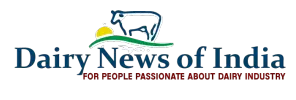Source:newindianexpress.com
Its milk procurement pegging at 19.25 crore kg, the State Government has recorded a whopping 22 per cent growth during the financial year 2015-16.
The per day average milk procurement during 2014-15, which was around 4.44 lakh kg, went up to 5.23 lakh kg during 2015-16, according to Fisheries and Animal Resources Development Department.
This was possible due to a rise in overall milk production in the State. From 1,784,000 tonne during 2013-14, total production rose to 1,903,000 tonne in 2014-15, approximately by six per cent.
Commissioner-cum-Secretary Bishnupada Sethi presented the facts at a review meeting chaired by Chief Secretary AP Padhi who directed that all veterinary services must reach the livestock farmers of the State. The Department has to proactively provide such services including appropriate animal feeding knowledge, he said.
The Department has been aggressively carrying out artificial insemination as well as infertility camps across the State. During 2015-16, 15 lakh artificial insemination was conducted which Sethi said, was more than the target. Similarly, around 10 lakh frozen semen doses are likely to be produced by end of this year. About 628 infertility camps have been organised by the Department too.
Sethi also informed the meeting that there has been no epidemic during the last three years as animal diseases have been controlled to a large extent. The Department has also made functional 27 district and three regional laboratories to provide expert services on animal rearing and care. That apart, around 1,456 diary co-operative societies have also been provided with artificial insemination facilities.

Prof of Odisha University of Agriculture and Technology Susant Das told the meeting that Odisha has been the first State to register cattle and buffalo species with National Bureau of Animal Genetic Resource (NBAGR). So far, Khariar, Ghumusari, Motou, Binjharpuri species and two buffalo species, Kalahandi and Chilika, have been registered with the agency because of their unique indigenous genetic character.
The committee also discussed the Bovine Breeding Policy which has identified establishment of embryo transfer technology laboratory, national bovine genomic centre, sex-sorted semen production technology and early pregnancy diagnosis as prioritised areas. An action plan of `32.36 crore for 2016-17 was discussed and approved in the meeting.
Comments
comments
























